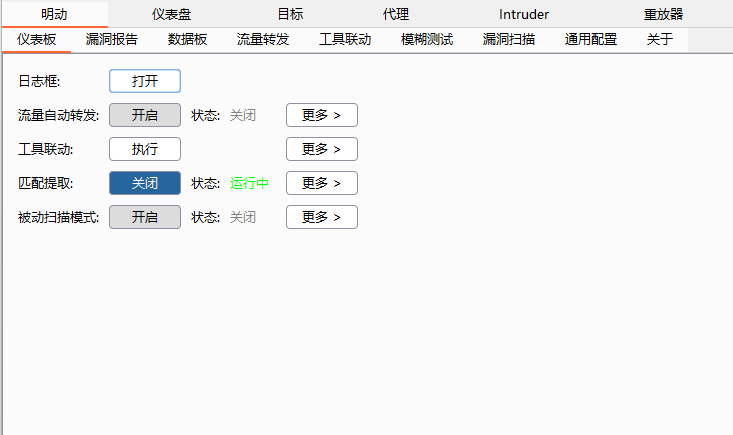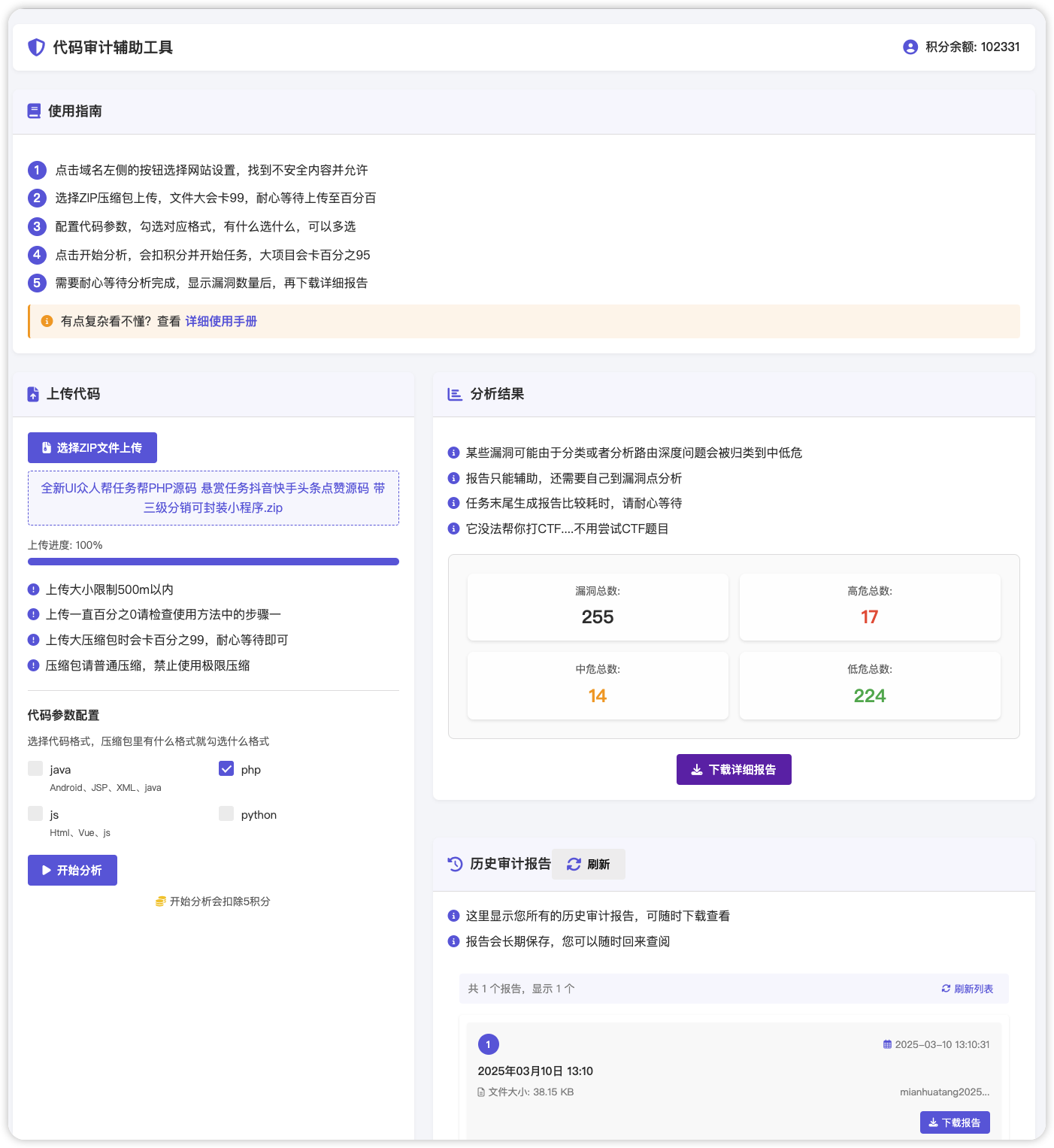# WordPress Plugin – File Manager 任意文件上传漏洞
========
一、漏洞简介
————
File
Manager是一个WordPress插件,由于函数处理不严谨,可构造恶意请求包上传任意文件。漏洞主要因为File
Manager插件中的elFinder库的调用未进行严格访问控制触发,导致可以被直接利用
二、漏洞影响
————
免费版受影响版本:V6.0-V6.8
Pro版受影响版本:V7.6-V7.0
三、复现过程
————
### 漏洞分析
漏洞点位于file
manager的connector.minimal.php文件,具体路径在`wordpress\wp-content\plugins\wp-file-manager\lib\php\connector.minimal.php`

首先实例化一个`elFinderConnector`对象,然后调用它的`run()`方法,跟进run();

如果HTTP请求的方法是`POST`,会把`POST`和`GET`请求的数据保存到`$src`,然后判断`POST`传的参数。如果不传入`targets`,就不会进入前几个判断,之后会把`POST`请求传的`cmd`变量赋给`$cmd`,然后调用`commandExists()`检测传入的`$cmd`是否存在。

然后利用`commandArgsList()`函数获取`$cmd`对应的命令参数列表,漏洞利用需要上传文件,这里只关注`$cmd`为`upload`的情况。
public function commandArgsList($cmd)
{
if ($this->commandExists($cmd)) {
$list = $this->commands[$cmd];
$list[‘reqid’] = false;
} else {
$list = array();
}
return $list;
}
/*upload对应的数组如下:
‘upload’ => array(
‘target’ => true, ‘FILES’ => true, ‘mimes’ => false, ‘html’ => false, ‘upload’ => false,
‘name’ => false, ‘upload_path’ => false, ‘chunk’ => false, ‘cid’ => false, ‘node’ => false,
‘renames’ => false, ‘hashes’ => false, ‘suffix’ => false, ‘mtime’ => false, ‘overwrite’ => false,
‘contentSaveId’ => false)
*/
循环遍历,将`POST`传入的参数保存到`$args`数组中,然后调用`input_filter()`函数对`$args`进行简单的过滤,

替换掉`%00`,并且做`stripslashes()`处理。然后将通过表单上传的文件`$_FILES`存到`$args[‘FILE’]`中。然后调用`exec()`函数,跟进

前面会进行一些判断,最后进入到`$this->$cmd($args)`调用`upload()`函数,跟进

首先将`POST`传入的`target`赋给`$target`变量,然后调用`volume()`函数,

可以看到`$this->volume`数组含有两项,一项是`l1_`,一项是`t1_`,`volume()`函数定义如果传入的`$hash`以`l1_`或`t1_`开头,返回`$this->volume`数组对应的值,否则返回false。在`upload`函数中会检测`$volume`,如果其为false,程序会报错结束,所以`POST`传入的`target`必须以它们两个为前缀。继续分析upload()函数。依次取出`$args`数组中的值赋给相应的变量,这里要求`$args[‘FILES’][‘upload’]`也就是`$_FILES[‘upload’]`为数组,才能将其赋给`$files`变量,这就需要上传文件时上传一个文件数组。接下来其他的如`html、upload_path、chunk、cid、mtime`等参数可以不传。之后遍历`$files[‘name’]`也就是`$_FILES[‘upload’][‘name’]`,如果文件上传成功,将`$_FILES[‘upload’][‘name’]`赋给`$tmpname`,然后调用`fopen()`打开上传的临时文件,将指针保存在`$fp`。在不传入`upload_path`时`$thash`等于`$target`,所以`$_target`为`$target`为我们`POST`传入的`target`变量。之后调用了`$volume->upload()`函数,第一个参数为之前打开文件的指针,第二个参数为`POST`传入的`target`变量,第三个参数为上传的文件名,第四个参数为空的数组。跟进`elFinderVolumeDriver`的`upload()`
public function upload($fp, $dst, $name, $tmpname, $hashes = array())
{
if ($this->commandDisabled(‘upload’)) {
return $this->setError(elFinder::ERROR_PERM_DENIED);
}
if (($dir = $this->dir($dst)) == false) {
return $this->setError(elFinder::ERROR_TRGDIR_NOT_FOUND, ‘#’ . $dst);
}
if (empty($dir[‘write’])) {
return $this->setError(elFinder::ERROR_PERM_DENIED);
}
if (!$this->nameAccepted($name, false)) {
return $this->setError(elFinder::ERROR_INVALID_NAME);
}
$mimeByName = ”;
if ($this->mimeDetect === ‘internal’) {
$mime = $this->mimetype($tmpname, $name);
} else {
$mime = $this->mimetype($tmpname, $name);
$mimeByName = $this->mimetype($name, true);
if ($mime === ‘unknown’) {
$mime = $mimeByName;
}
}
if (!$this->allowPutMime($mime) || ($mimeByName && !$this->allowPutMime($mimeByName))) {
return $this->setError(elFinder::ERROR_UPLOAD_FILE_MIME, ‘(‘ . $mime . ‘)’);
}
$tmpsize = (int)sprintf(‘%u’, filesize($tmpname));
if ($this->uploadMaxSize > 0 && $tmpsize > $this->uploadMaxSize) {
return $this->setError(elFinder::ERROR_UPLOAD_FILE_SIZE);
}
$dstpath = $this->decode($dst);
if (isset($hashes[$name])) {
$test = $this->decode($hashes[$name]);
$file = $this->stat($test);
} else {
$test = $this->joinPathCE($dstpath, $name);
$file = $this->isNameExists($test);
}
$this->clearcache();
if ($file && $file[‘name’] === $name) { // file exists and check filename for item ID based filesystem
if ($this->uploadOverwrite) {
if (!$file[‘write’]) {
return $this->setError(elFinder::ERROR_PERM_DENIED);
} elseif ($file[‘mime’] == ‘directory’) {
return $this->setError(elFinder::ERROR_NOT_REPLACE, $name);
}
$this->remove($test);
} else {
$name = $this->uniqueName($dstpath, $name, ‘-‘, false);
}
}
$stat = array(
‘mime’ => $mime,
‘width’ => 0,
‘height’ => 0,
‘size’ => $tmpsize);
// $w = $h = 0;
if (strpos($mime, ‘image’) === 0 && ($s = getimagesize($tmpname))) {
$stat[‘width’] = $s[0];
$stat[‘height’] = $s[1];
}
// $this->clearcache();
if (($path = $this->saveCE($fp, $dstpath, $name, $stat)) == false) {
return false;
}
$stat = $this->stat($path);
// Try get URL
if (empty($stat[‘url’]) && ($url = $this->getContentUrl($stat[‘hash’]))) {
$stat[‘url’] = $url;
}
return $stat;
}
首先进入`commandDisabled()`函数,返回false。

然后进入`dir()`函数,参数为`$dst`即`POST`传入的`target`值。

调用了file函数,

跟进`decode()`函数


`decode()`函数首先判断是否以`$this->id`开头,然后截取出`l1_`后面的内容,之后进行base64解密,uncrypt函数如上,未作操作。然后更换分隔符,之后调用`abspathCE()`函数,从注释中可以看出,`abspathCE()`函数会先判断`$path`是否等于分隔符`\`,如果等于,返回`$this->root`,否则返回`$this->root`拼接`$path`。看下对应的`abspathCE()`函数。



> ps:POST传入target前缀不同的区别
– 前缀为`l1_`时,`$this->root`
为`C:\Users\admin\phpstudy_pro\WWW\wordpress\wp-content\plugins\wp-file-manager\lib\files`
> {width=”5.833333333333333in”
> height=”2.864215879265092in”}
– 前缀为`t1_`时,`$this->disabled[]`包含`upload`,程序会报错结束,`$this->root`
为`C:\Users\admin\phpstudy_pro\WWW\wordpress\wp-content\plugins\wp-file-manager\lib\files\.trash`
> {width=”5.833333333333333in”
> height=”4.630450568678915in”}
继续分析程序流程,`decode()`函数会返回`C:\Users\admin\phpstudy_pro\WWW\wordpress\wp-content\plugins\wp-file-manager\lib\files`,然后调用`stat()`函数。


stat()函数返回的`$ret`为
Array
(
[isowner] =>
[ts] => 1589423646
[mime] => directory
[read] => 1
[write] => 1
[size] => 0
[hash] => l1_Lw
[name] => files
[rootRev] =>
[options] => Array
(
[path] =>
[url] => /wordpress/wp-content/plugins/wp-file-manager/lib/php/../files/
[tmbUrl] => /wordpress/wp-content/plugins/wp-file-manager/lib/php/../files/.tmb/
[disabled] => Array
(
[0] => chmod
)
[separator] => [copyOverwrite] => 1
[uploadOverwrite] => 1
[uploadMaxSize] => 9223372036854775807
[uploadMaxConn] => 3
[uploadMime] => Array
(
[firstOrder] => deny
[allow] => Array
(
[0] => all
)
[deny] => Array
(
[0] => all
)
)
[dispInlineRegex] => ^(?:(?:video|audio)|image/(?!.+\+xml)|application/(?:ogg|x-mpegURL|dash\+xml)|(?:text/plain|application/pdf)$)
[jpgQuality] => 100
[archivers] => Array
(
[create] => Array
(
[0] => application/x-tar
[1] => application/zip
)
[extract] => Array
(
[0] => application/x-tar
[1] => application/zip
)
[createext] => Array
(
[application/x-tar] => tar
[application/zip] => zip
)
)
[uiCmdMap] => Array
(
)
[syncChkAsTs] => 1
[syncMinMs] => 10000
[i18nFolderName] => 0
[tmbCrop] => 1
[tmbReqCustomData] =>
[substituteImg] => 1
[onetimeUrl] => 1
[trashHash] => t1_Lw
[csscls] => elfinder-navbar-root-local
)
[volumeid] => l1_
[locked] => 1
[isroot] => 1
[phash] =>
)
返回`dir()`函数,然后在返回到`upload()`函数,将返回值赋给`upload()`函数中的`$dir`变量,

然后进行`mime`的判断,程序识别上传的php脚本的`mime`为`text/x-php`,跟进`allowPutMime()`函数,

从程序自带的注释中可以看出如果`uploadOrder`数组为`array(‘deny’,’allow’)`,则默认允许上传`$mime`类型的文件。然后获取文件的大小,若文件大小不合法报错结束程序,之后`decode()`处理`$dst`(`POST`**传入的**`target`**值**)返回结果赋给`$dstpath`,因为`$hash`为空数组,所以会调用`joinPathCE()`将`$dstpath`和`$name`(**上传文件的文件名**)拼接,然后检查文件是否存在。

最后调用`$this->saveCE()`

跟进`_save()`。

本地是利用Windows系统分析,`$path`为`C:\Users\admin\phpstudy_pro\WWW\wordpress\wp-content\plugins\wp-file-manager\lib\files\shell.php`;`$uri`为`C:\Windows\phpxxxx.tmp`,最后会调用`copy()`将上传的文件复制到`\wordpress\wp-content\plugins\wp-file-manager\lib\files\shell.php`,即完成了任意文件上传。

### 漏洞复现

访问`https://www.0-sec.org/wordpress/wp-content/plugins/wp-file-manager/lib/files/shell.php`












 会员专属
会员专属

